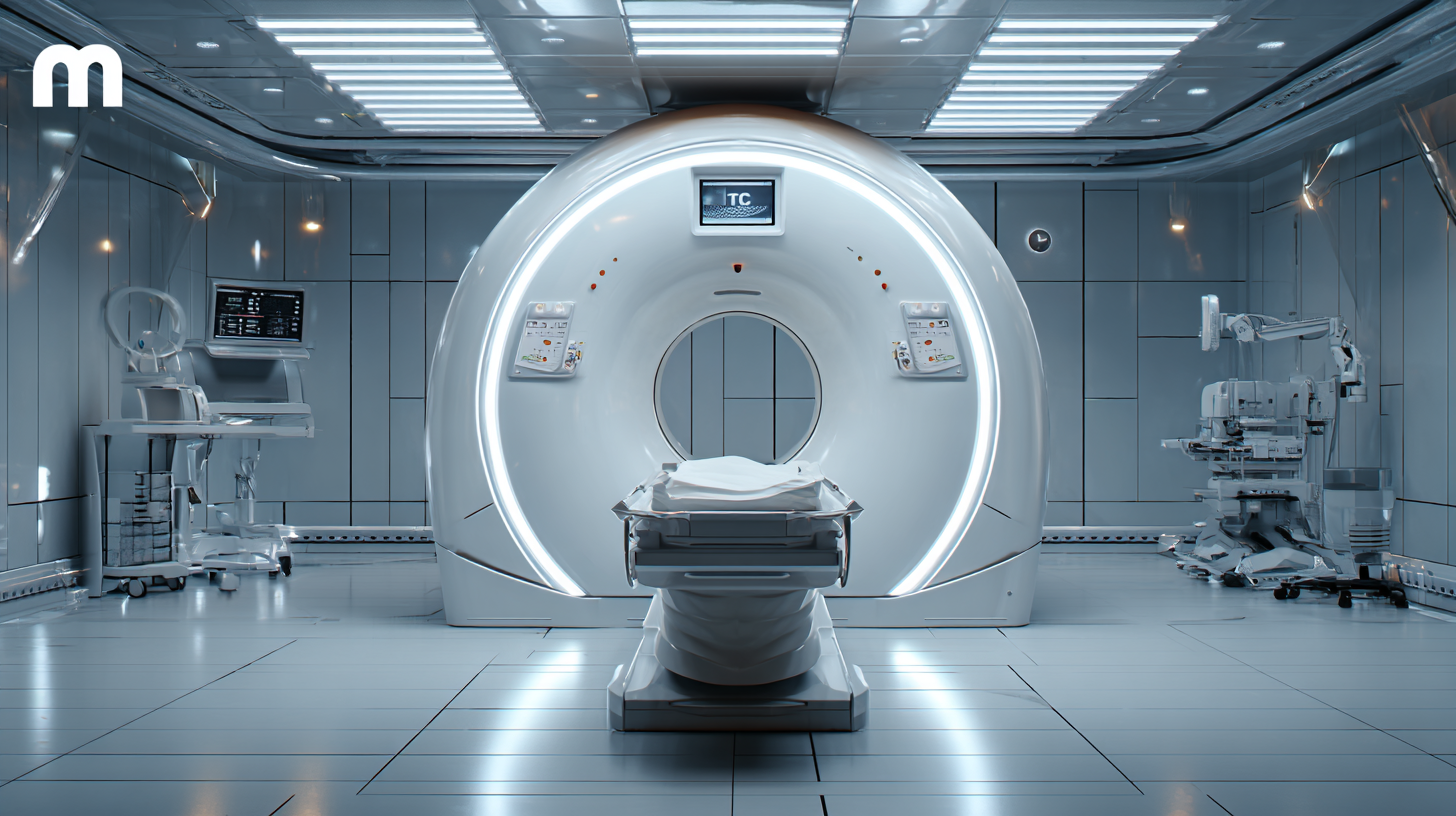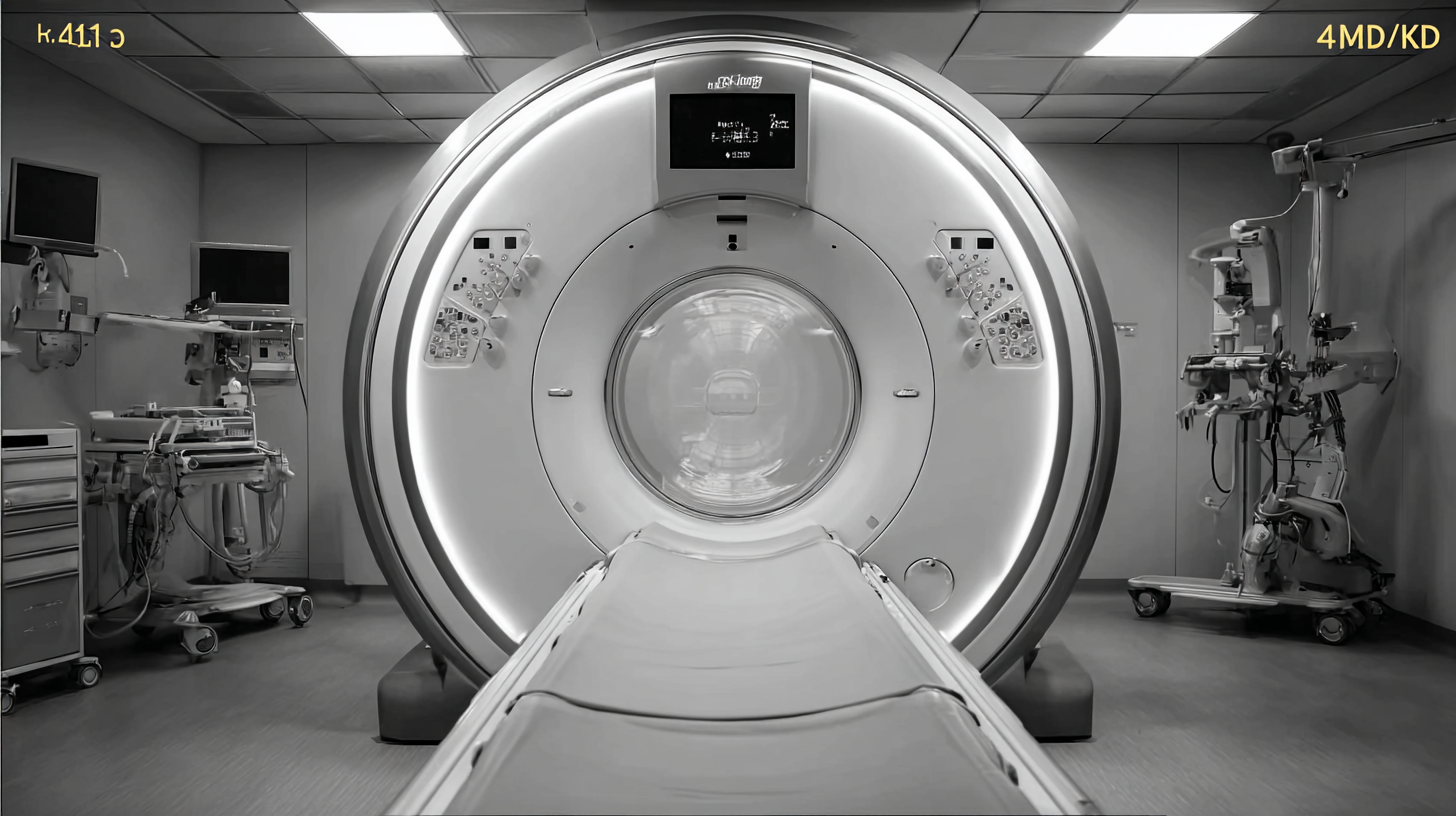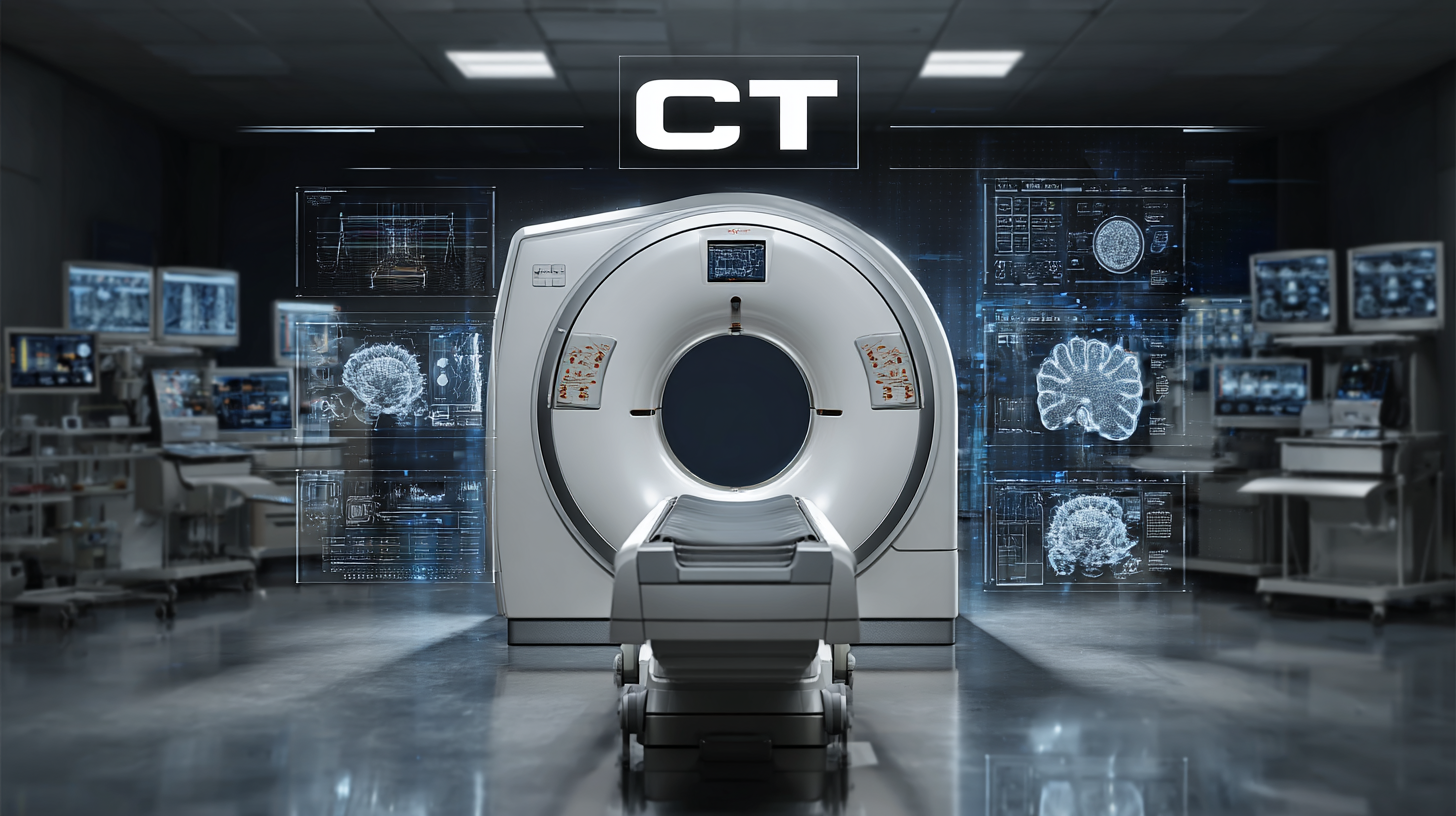In the rapidly evolving field of medical diagnostics, the role of the CT machine has become increasingly pivotal, with data from the Radiological Society of North America indicating that over 80 million CT scans are performed annually in the United States alone. This impressive figure reflects the growing reliance on this advanced imaging technology to enhance diagnostic accuracy, expedite treatment decisions, and improve patient outcomes. As healthcare providers strive to keep pace with the mounting demand for precise imaging solutions, selecting the best CT machine emerges as a critical factor. Not only does a high-quality CT machine facilitate the detection of conditions ranging from tumors to internal injuries, but it also supports innovations in treatment planning and surgical navigation. In this blog, we will explore seven compelling reasons that underscore the essential role of the best CT machine in modern medical diagnostics, highlighting its contributions to effective healthcare delivery and patient care.

In the rapidly evolving field of medical diagnostics, having access to a high-quality CT machine is crucial. A report by the Radiological Society of North America highlights that CT scans account for nearly 70 million procedures annually in the United States alone, underscoring their importance in patient care. High-quality machines provide enhanced image resolution, which is critical for accurate diagnosis and treatment planning. For instance, modern CT machines with high detector counts can deliver clearer images with lower radiation doses, making them safer for patients while still being highly effective in identifying conditions such as tumors, fractures, and internal bleeding.

Key features of high-quality CT machines include advanced imaging technologies such as iterative reconstruction algorithms and dual-energy scanning capabilities. These innovations not only improve image quality but also provide detailed insights into tissue composition and pathology. According to a study published in the Journal of Medical Imaging, the use of dual-energy CT can differentiate between various types of tissues based on their atomic numbers, offering a significant advantage in diagnosing complex conditions. Furthermore, user-friendly interfaces and automated protocols allow radiologists to enhance workflow efficiency, ultimately leading to faster diagnosis and better patient outcomes.
When it comes to selecting a CT machine provider, evaluating supplier reputation is paramount. A reputable supplier should have a strong track record of quality and reliability. Look for companies that have positive reviews from healthcare facilities and have been in the industry for several years. It’s also beneficial to check if they are accredited by recognized medical equipment organizations, as this indicates adherence to strict quality standards.
Another important aspect is the level of customer support offered. A trustworthy provider should offer comprehensive training on the equipment and continuous support after the purchase. This ensures that your facility can maximize the use of the CT machine and address any potential issues promptly. When engaging with suppliers, ask about their service agreements and response times for technical support.
Additionally, consider the supplier's innovation and technology. The best CT machine providers will continually invest in research and development to provide cutting-edge solutions. Look for providers who are committed to offering the latest advancements in imaging technology, which will help your medical diagnostic capabilities remain at the forefront of modern healthcare.
Advanced technology in modern CT scanners is revolutionizing the landscape of medical diagnostics. These machines leverage cutting-edge imaging techniques such as iterative reconstruction and dual-energy scanning, which significantly enhance image quality while reducing radiation exposure. According to a report by the American College of Radiology, modern CT technology can reduce radiation doses by up to 50% compared to older machines, promoting safer diagnostic practices.
Moreover, the integration of artificial intelligence (AI) in CT scans has further improved diagnostic accuracy and efficiency. A study published in the Journal of the American Medical Association demonstrated that AI algorithms can assist radiologists in detecting abnormalities, increasing sensitivity by 15% in certain conditions. This synergy between advanced technology and human expertise facilitates more precise diagnosis and timely treatment planning, ultimately contributing to better patient outcomes in modern medicine. As diagnostic imaging continues to evolve, the reliance on high-quality CT machines will undoubtedly play a pivotal role in shaping the future of healthcare.
When selecting a CT machine for modern medical diagnostics, cost considerations are paramount. The healthcare market is facing significant challenges, including anticipated cuts in federal Medicaid spending and increasing pressure on hospitals to do more with limited resources. As organizations grapple with tighter budgets, the need to balance quality and affordability when choosing a CT supplier becomes critical. Investing in the best CT technology can improve diagnostic accuracy and patient outcomes, yet it must align with fiscal realities, especially in a shifting reimbursement landscape.
In this context, hospitals must assess not only the initial acquisition costs of CT machines but also the long-term financial benefits they bring. High-quality machines often translate to fewer misdiagnoses and improved workflow efficiency, which can mitigate costs down the line. Moreover, as policy changes continue to impact funding and operational costs within the healthcare system, strategic investments in advanced imaging technologies will be vital for providers aiming to maintain high standards of care while navigating financial constraints.
In the rapidly evolving landscape of medical diagnostics, having a top-tier CT machine is just the beginning. Essential support and maintenance services from your CT machine vendor play a crucial role in ensuring the optimal performance and longevity of the equipment. According to a report by Grand View Research, the global CT scan market is projected to reach USD 7.58 billion by 2025, emphasizing the need for reliable service agreements to mitigate downtime. A well-maintained CT machine not only enhances diagnostic accuracy but also improves patient safety and workflow efficiency.
Regular maintenance checks, recommended every six months, can prevent unexpected failures that may lead to costly repairs or extended service interruptions. Tip: Establish a solid relationship with your vendor to ensure prompt access to technical support and parts. Additionally, consider training your staff on basic troubleshooting to efficiently handle minor issues without immediately relying on external support.
Furthermore, investing in comprehensive service contracts that include regular software updates is vital for staying compliant with industry standards. The Journal of Applied Clinical Medical Physics highlights that outdated software can lead to diagnostic errors and affect image quality. Tip: Schedule routine assessments to keep your machine's software and hardware updated, ensuring you provide the best care to your patients while maximizing your CT machine's potential.
